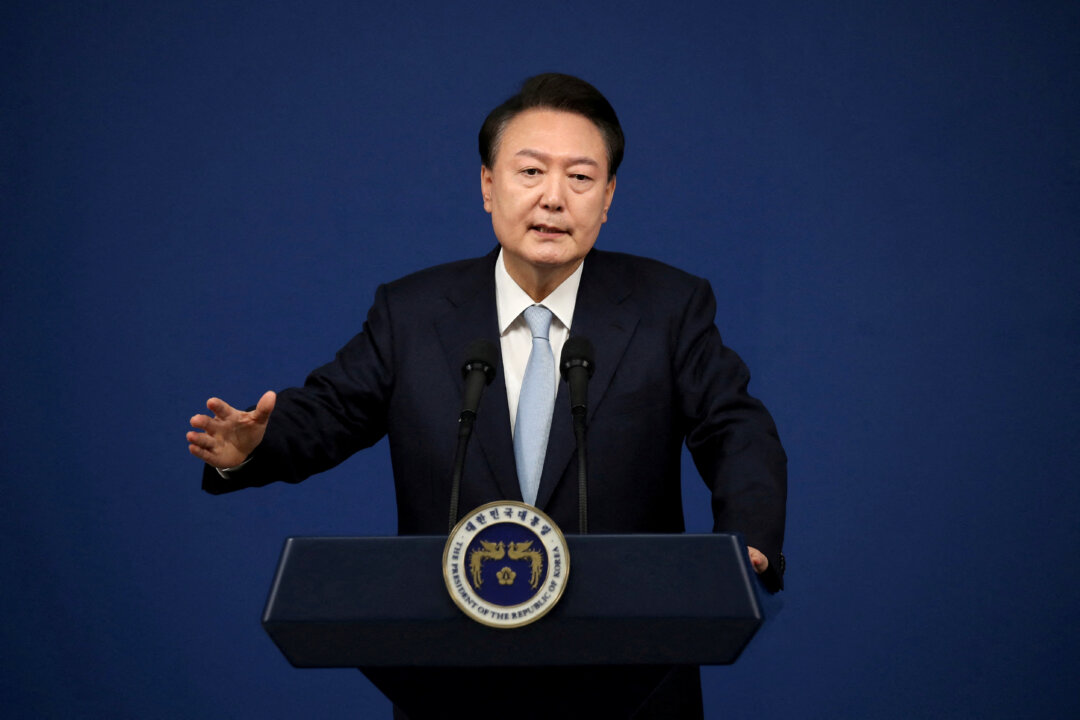The vote was conducted as the National Assembly seeks to impeach President Yoon Suk Yeol over his short-lived martial law declaration.
South Korea’s National Assembly passed impeachment motions on Dec. 4 against four senior government officials over their handling of probes into the relocation of the presidential office and First Lady Kim Keon Hee.
The assembly, led by the opposition party Democratic Party of Korea (DPK), passed motions against Choe Jae-hae, chair of the Board of Audit and Inspection; Lee Chang-soo, chief of the Seoul Central District Prosecutors Office; and Cho Sang-won and Choi Jae-hun, both of whom are senior prosecutors under Lee.
Choe is accused by the DPK of overseeing a “poor review” of alleged irregularities surrounding the relocation of the presidential office in 2022, The Korea Herald reported.
The party has also cited his failure to comply with a parliamentary request to submit documents related to the audit as reasoning for the impeachment motion, according to the publication.
Elsewhere, the party has accused the three prosecutors of failing to indict the first lady over her alleged involvement in a stock price manipulation scheme involving imported car distributor Deutsch Motors Inc.
Prosecutors have not pursued charges against the first lady over the allegations, citing a lack of evidence.
Lawmakers voted 188–4 to pass the impeachment motion against Choe, 185–3 to pass the motion against Lee, 187–4 against Cho, and 186–4 against Choi, according to local media.
Members of the ruling People Power Party (PPP) boycotted the vote, which they say is politically motivated in part because both Lee and Cho led investigations into DPK leader Lee Jae-myung.
All four senior government officials will be suspended from their duties while South Korea’s Constitutional Court decides whether or not to uphold their impeachment, a process that could take up to 180 days.
The impeachment motions were conducted just one day after the DPK and other small opposition parties submitted a joint motion to impeach President Yoon Suk Yeol over his martial law declaration, which lasted just six hours before he reversed it.Opposition lawmakers said Yoon’s martial law declaration violated multiple laws.
Opposition parties need a two-thirds majority to pass the impeachment bill, which also needs the support of at least eight lawmakers from the ruling party in order to pass. The Constitutional Court will then decide whether to uphold it.
Jo Seoung-lae, spokesperson of the DPK, told multiple media that it will push for a National Assembly vote on Yoon’s impeachment motion on Dec. 8. The spokesperson called Yoon’s martial law declaration an “unconstitutional, illegal rebellion or coup.”
Yoon’s PPP has said it will oppose the move.
South Korea’s president declared martial law on Dec. 3 as part of what he said were efforts to combat unspecified threats from “anti-state forces” within the opposition.
In a statement, Yoon claimed the opposition was “paralyzing” judicial operations as well as the executive branch, and accused members of the opposing parties of sympathizing with North Korea.
The move sent shockwaves around the country and sparked widespread protests. Within hours of the proclamation, the National Assembly, with 190 of its 300 members present, unanimously passed a motion for martial law to be lifted.
Yoon rescinded the declaration roughly six hours after first issuing it. Since then, several of his aides have since resigned, including his presidential chief of staff, his national security adviser, and his chief of staff for policy, according to the presidential office.
On Dec. 4, Yoon’s office announced that his defense minister, Kim Yong Hyun, had also stepped down. The president replaced him with Choi Byung Hyuk, who is South Korea’s ambassador to Saudi Arabia, his office said.
Aldgra Fredly, The Associated Press, and Reuters contributed to this report.

